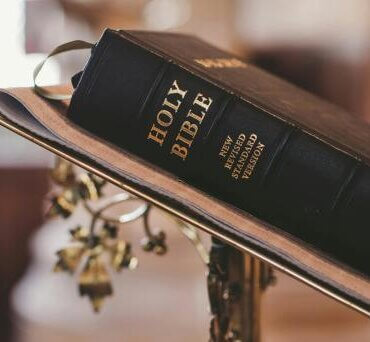
The Bible
Being ‘precise’ has importance for good reasons. Multiple areas of life demonstrate how a ‘near enough will do’ approach can result in disaster. Engineers and builders understand why it’s important not to take liberty with measurements. Doctors shouldn’t prescribe medication without careful regard for dosages. Contractors know securing jobs on the basis of loose quoting could cost them dearly. Hunters know a bullet just a millimetre or two off-target when departing a gun barrel, follows an ever widening trajectory to miss an intended target by a ‘country mile’ once it’s travelled 300 metres.

Murray Smith
In September 2020, while riding a motorbike, I was ‘T-boned’ by a vehicle whose driver failed to stop at a stop sign… (my first bike mishap in over 50 years following getting a bike licence upon turning 15). It was traumatising with my daughter, in the early stages of pregnancy riding pillion, getting catapulted over my head. We were out riding one more time, in her words, “…before I get too big.” Tiffany experienced whiplash but miraculously she and baby were otherwise unharmed. I’m grateful that God spared our lives although I sustained significant injuries. I lay on the road barely able to breathe as one of twelve broken ribs punctured and collapsed my lung – a broken right shoulder, a smashed hand which surgeons described as ‘a bag of bones,’ a hip injury and painful bruising, also resulted.
Later I learned that a fractured rib had stopped “just a millimetre or two” short of rupturing my aorta, the largest artery in our bodies. I’d experienced God’s precise intervention in preventing a life-threatening situation beyond medical help.
There’s a saying, “Big doors swing on little hinges.” The calamitous ‘O-ring’ seal failure that spelt tragedy for the 1986 Challenger Space Shuttle confirms that statement.
To me, it’s also relevant to the cavalier way many people live out their lives overlooking really important issues.
I’m referring to contemporary culture’s increasingly thoughtless ‘near enough is good enough’ attitude, setting people up for disaster which could be averted. Bad choices made with reckless abandonment and callous indifference to wrongdoing is an ever-present reality. The rising tide of permissiveness and evil – selfishness, theft, cheating, greed, drunkenness, lust, violence, immorality, dishonesty… escalates around us daily.
A young man recently asked, ‘How much can I sin, with it being okay?’ The question, ‘what can I get away with?’ misses the point that we’re flirting with destruction allowing any sin in our lives. That ‘millimetre or two’ can mean life or death. Justifying lying as innocent little ‘white lies’ and calling it okay, we deceive ourselves. It’s no more okay than ‘white adultery’, or ‘white murder’… it’s all sinful junk we cannot trivialise.
Cynics knock the mention of sin as an irrelevant outdated concept -nonetheless its consequences remain potent for time and eternity. “The penalty for sin is death…” the Bible states, explaining that means eternal separation from God. To save people from this fate, Jesus mercifully provided a pathway to forgiveness for our helpless state, “the gift of God is eternal life through Jesus Christ.”
Heeding that inner voice -admitting and forsaking sin, we find freedom.

Flat Lay of the Holy Bible and Items on the Desk. Photo: Chris Liu, pexels.com








